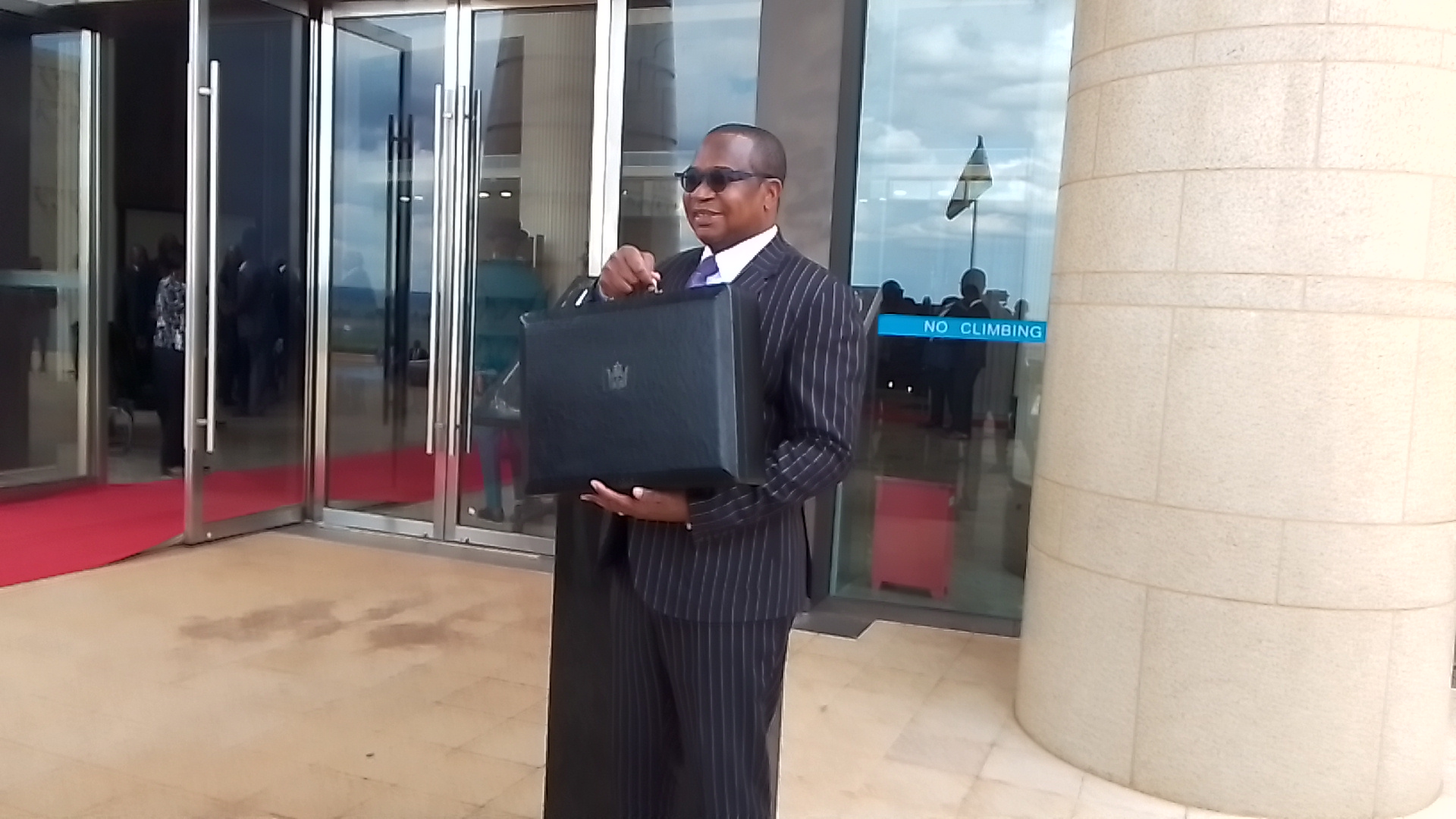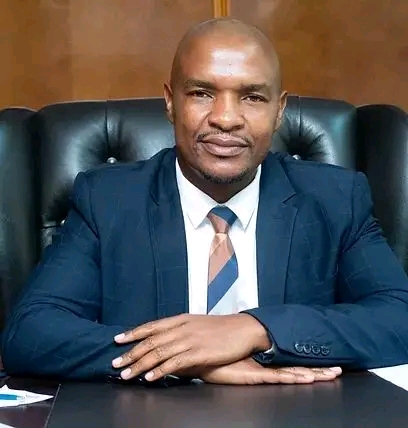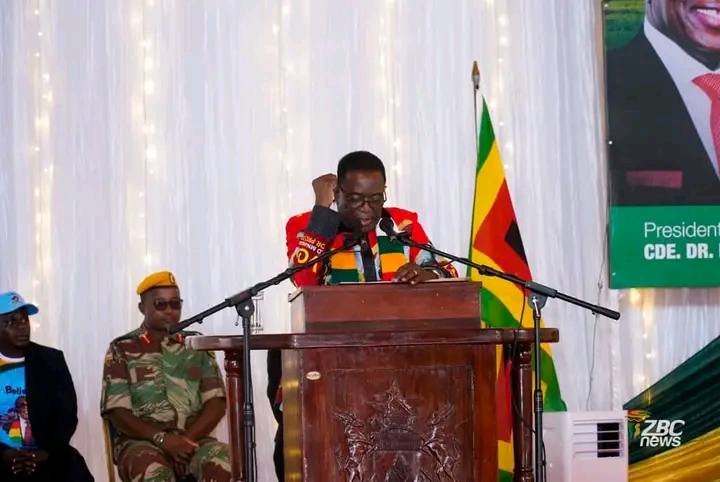Minister of Finance, Economic Development and Investment Promotion Prof Mthuli Ncube
By Kudakwashe Dzanyaza
Zimbabwe’s Minister of Finance, Economic Development and Investment Promotion Prof Mthuli Ncube this Thursday afternoon presented the 2024 National Budget, with the national cake and policy directives attached to it expected to propel the nation to economic transformation and prosperity.
The budget reveals ministry financial allocations, tax directives, incentives and other directives that government believes will help achieve national financial and economic stability and growth.
The budget amounts to 58,2 trillion Zimbabwean dollars, highest allocations going to the Primary and Secondary Education Ministry which got ZW$8 trillion, Health and Child Care receiving ZW$6,3 trillion, Land and Agriculture Ministry received ZW$4,2 trillion.
For the Ministry of Energy and Power Development, Prof Mthuli Ncube allocated Z$90 billion, which he said will facilitate investments in energy generation, enhance the transmission and distribution network, as well as sustain the rural electrification programme.
The budget comes at a time when the energy and power sector in Zimbabwe is grappling with a host of challenges mainly with regards to electricity generation, distribution and transmission which is critically affecting other sectors such as agriculture, mining and manufacturing.
According to Professor Ncube, “the forced outages and limited costly imports from the region are seriously undermining economic activity, particularly for energy intensive sectors of mining and agriculture, with costs of loadshedding on the economy estimated at 6.1% of GDP”.
The Treasury boss attributed the power supply deficits to depressed generation capacity of existing plants as a result of obsolete equipment at thermal power stations, low water levels at Kariba dam and aged transmission networks, including ZESA technical and non-technical system losses of power.
The budget therefore spoke on the measures that have been set to address these challenges. Minister Ncube revealed that the Energy and Power development sector is expected to benefit from US$9.8 million of development assistance in 2024 towards improving the distribution and transmission of power, solar energy projects and the promotion of green energy sources.
Of this amount, US$3.6 million is projected to be disbursed towards technical services and supervision consultancy and
spillway gates refurbishment under the Multinational Kariba Dam Rehabilitation Project.
An amount of US$1.3 million is projected to be disbursed in 2024 towards Sino-hydro performance guarantee, completion of the outstanding social upliftment works at Sadoma Clinic, Slaughter Primary School and Karoi Old People’s Home and social upliftment activities under the Alaska Karoi Power Transmission Reinforcement Project.
With the current electricity deficit of 500MW arising from generation of 1 280MW, against an average local demand of 1 850MW, the government has announced some measures targeting sufficient electricity supply.
Specifically, Government has approved a Roadmap Towards Electricity Self Sufficiency that embraces private sector investment in renewable sources such as solar and hydro, implementation of cost reflective tariffs and governance reforms at ZESA and its subsidiaries. In addition, Government is in the process of restructuring of ZESA Holdings to improve operational efficiency, which is expected to be completed during 2024.
The electricity supply industry is currently dominated by government owned power entities , namely the Zimbabwe Power Company (ZPC) and the Zimbabwe Electricity Transmission and Distribution Company (ZETDC). ZPC focusses on generation while ZETDC focusses on distribution and transmission.
The short-term interventions include importation of electricity from neighbouring countries of between 210MW and 500MW, together with decommissioning and repurposing of small thermal power stations to reduce operational costs at ZESA Holdings.
Through the Government Implementation Agreement for all solar IPP projects, the private sector has been provided with risk mitigation provisions that will enhance bankability of projects.
Furthermore, Government has encouraged renewable energy investments, private sector power-to-mine investments and direct importation from the region by high energy consumers that will help free up energy supply to other sectors.
In addition, capacity building measures will be implemented to strengthen technical planning and coordination of the sector, including development of a least cost Systems Development Plan, that also promotes transition to clean energy sources.
Government, through the Rural Electrification Fund will extend access of electricity to unserved areas, targeting schools, health centres, business, Government offices, as well as community programmes such as irrigation schemes.
Medium-term interventions include working on reducing system losses and savings by rehabilitation and refurbishment of the transmission and distribution network, as well as rolling out of prepaid and smart metres on all electricity consumers.
The government has set a goal to commission small hydro and solar power stations, which are expected to generate additional capacity of about 90MW in 2024 through IPPs. In 2025, an additional 296 MW is expected to come on stream mostly from solar, hydro and coal projects.
To facilitate these investments in energy by IPPs, Treasury is issuing Government Support Agreements for the projects to be bankable.
In addition, Government has allowed ZESA Holdings to gradually review tariffs towards cost recovery level, which is expected to enhance its balance sheet and promote IPPs investment in the sector.
Government will also secure funding to repower Hwange Units 1 to 6 and other new investments such as Batoka hydro project (2 400MW) and Devils Gorge among other renewable energy projects.
“The fiscal policy thrust for the 2024 National Budget is guided by the need to maintain a sustainable budget deficit within the SADC macroeconomic convergence threshold of not more than 3% of GDP.
“Going into 2024, the Government seeks to consolidate and entrench the stability to facilitate economic transformation and preserve disposable incomes,” said Prof Ncube


